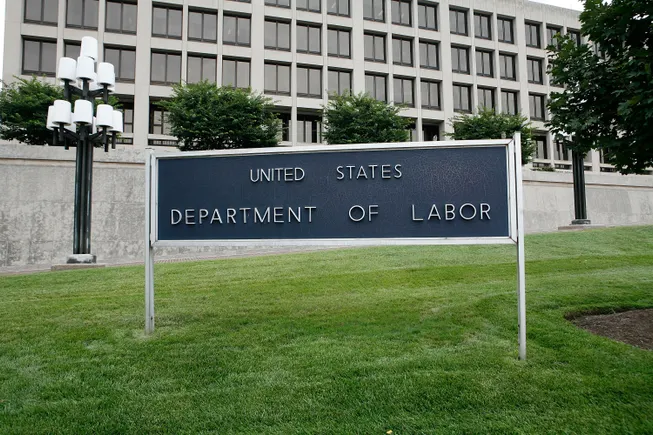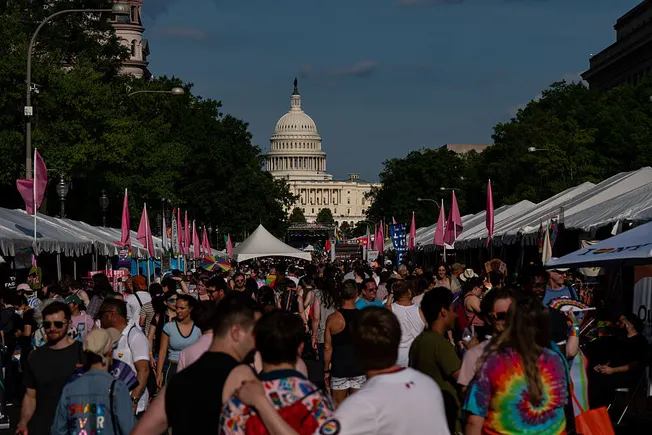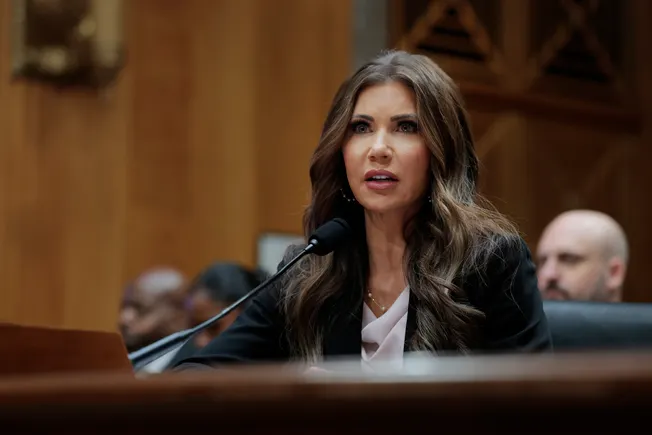Northwestern University on Monday touted an 88% year-over-year decline in complaints of antisemitic discrimination or harassment as of November 2024.
Over the past year, the Illinois university said it has intensified its efforts to crack down on antisemitism. Officials now require all students and employees to take antisemitism training, and they tightened the rules around demonstrations and increased the police presence on campus.
The announcement comes less than a month after the U.S. Department of Education named Northwestern among 60 colleges facing federal probes over allegations of antisemitism. However, the scrutiny into Northwestern predates President Donald Trump’s second election.
Last May, the Republican-led House Committee on Education and Workforce opened an investigation into the university’s handling of pro-Palestinian protests and cases of alleged antisemitism. And in October, the committee accused Northwestern and 10 other high-profile colleges of failing to protect Jewish students from antisemitism.
The committee’s report alleged that the university made undue concessions to pro-Palestinian protesters who had set up an encampment on campus during the spring term. In one example, it said a professor appointed to negotiate with student activists instead advised them “on how to pressure trustees to advance divestment.”
Over the past year, Northwestern has put new safeguards in place to better protect Jewish students, it said Monday.
The university’s new antisemitism trainings, created in collaboration with the pro-Israel Jewish United Fund, “will continue as a permanent part of our broader training in civil rights and Title IX,” the report said.
Northwestern also added a new intimidation standard to its conduct code in September, barring students from subjecting people or groups to “abusive, demeaning, harassing, humiliating, intimidating, threatening or violent behavior that substantially affects the ability of the person or group to learn, work or live in the University environment.”
Addressing protests, the university rolled out policies limiting when and how people could display banners, distribute and hang flyers, and erect structures such as tents on campus.
“Although, as a private institution, Northwestern is not legally bound by the First Amendment, our new policies are fully consistent with Constitutional values as reasonable time, place and manner rules,” the report said.
In February, Northwestern also adopted the International Holocaust Remembrance Alliance’s definition of antisemitism. The month prior, Trump directed federal agencies to weigh the definition when enforcing civil rights law, reaffirming an executive order he issued during his first term.
However, the academic behind the definition said he never intended for his work to be applied to speech on college campuses. And critics of its widespread adoption argue that some of the definition’s examples of antisemitism — such as saying “the existence of a State of Israel is a racist endeavor” and comparing “contemporary Israeli policy to that of the Nazis” — infringe on free speech.
This academic year, Northwestern sanctioned 11 students for violating its demonstration and display policies, with punishments ranging from warnings to multi-month disciplinary probation.
The university also said it terminated a staff member for employee policy violations. On Tuesday, a university spokesperson declined to elaborate, saying “per University policy, we do not comment on personnel matters.”
‘A political hit job’
Northwestern’s update comes as one of its professor faces termination following his involvement in a pro-Palestinian protest last year.
Steven Thrasher, an HIV/AIDS scholar and a journalism professor at Northwestern, said late last month that the university had denied his bid for tenure and terminated him effective August 2026.
A Northwestern spokesperson declined to comment Tuesday, citing university policy.
Thrasher, who holds a social justice reporting chair, participated in a student-led pro-Palestinian demonstration on Northwestern’s campus in April 2024. At that event, he was one of at least three professors arrested for “obstructing a police officer.” Thrasher, in turn, alleged the campus police assaulted him.
The charges against him were ultimately dropped, but Northwestern suspended Thrasher amid an investigation into his actions opened last year. In January, Thrasher said the disciplinary committee cleared him. However, he said the administration had opened a second investigation.
Thrasher asserted that his termination and tenure rejection are “a political hit job over my support for Palestine” and unrelated to the quality of his work.
Thrasher is still employed at the university. But students registered for his class got a last-minute notice this week saying it was canceled, the Evanston Roundtable reported.
On Sunday, over 100 current and former Northwestern students published an open letter condemning Thrasher’s looming termination.
“We see this move as a disturbing concession to rising authoritarian forces that actively pose an existential threat,” they wrote in the Daily Northwestern.
Mounting scrutiny from legislators
Along with the Trump administration’s investigation, Northwestern is facing intensifying scrutiny from House lawmakers.
On Thursday, Republican leaders of the House education committee sent a letter to Northwestern leaders accusing the university of supporting “illegal, antisemitic conduct” by representing pro-Palestinian protesters and demonstrators. The letter also raised broader concerns with the clinics, saying Northwestern Law is funding “left-wing advocacy with its institutional resources.”
Lawmakers gave Northwestern until April 10 to turn over “all written policies, procedures, and guidance relating to the function” of its legal clinic, as well as all “hiring materials and performance reviews” for one of the clinic directors.
A spokesperson for Northwestern said Tuesday its law school’s legal clinic operates within the standards set by the American Bar Association, and that the cases it takes “do not necessarily reflect the views of the university or its law school.”
“Like law schools across the country, our legal clinic provides valuable learning experience for students and accepts cases ranging across the political and legal spectrum” from pro-Palestinian demonstrators to Jan. 6 protesters, the spokesperson said Tuesday. The spokesperson also referenced the law school’s recent partnership with the Brandeis Center to handle antisemitism cases in elementary and high schools.






Leave a Reply